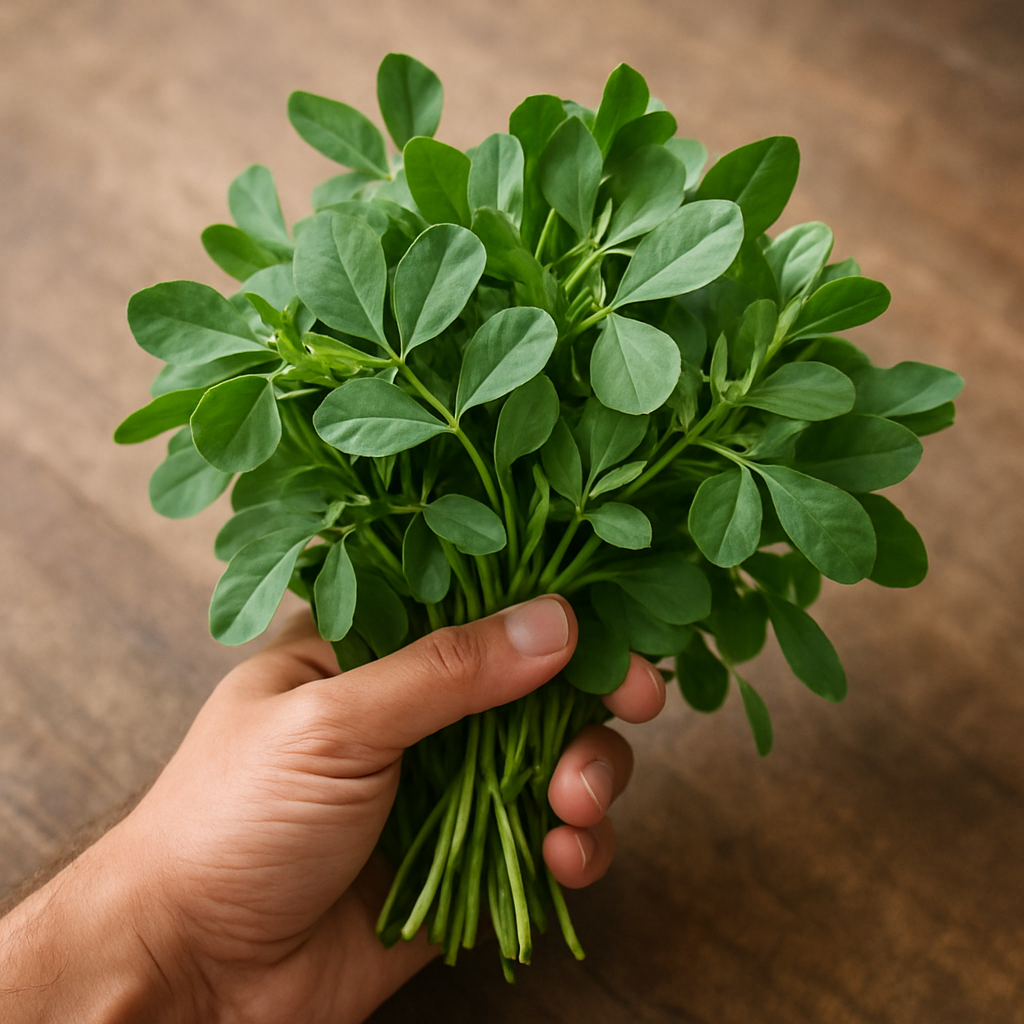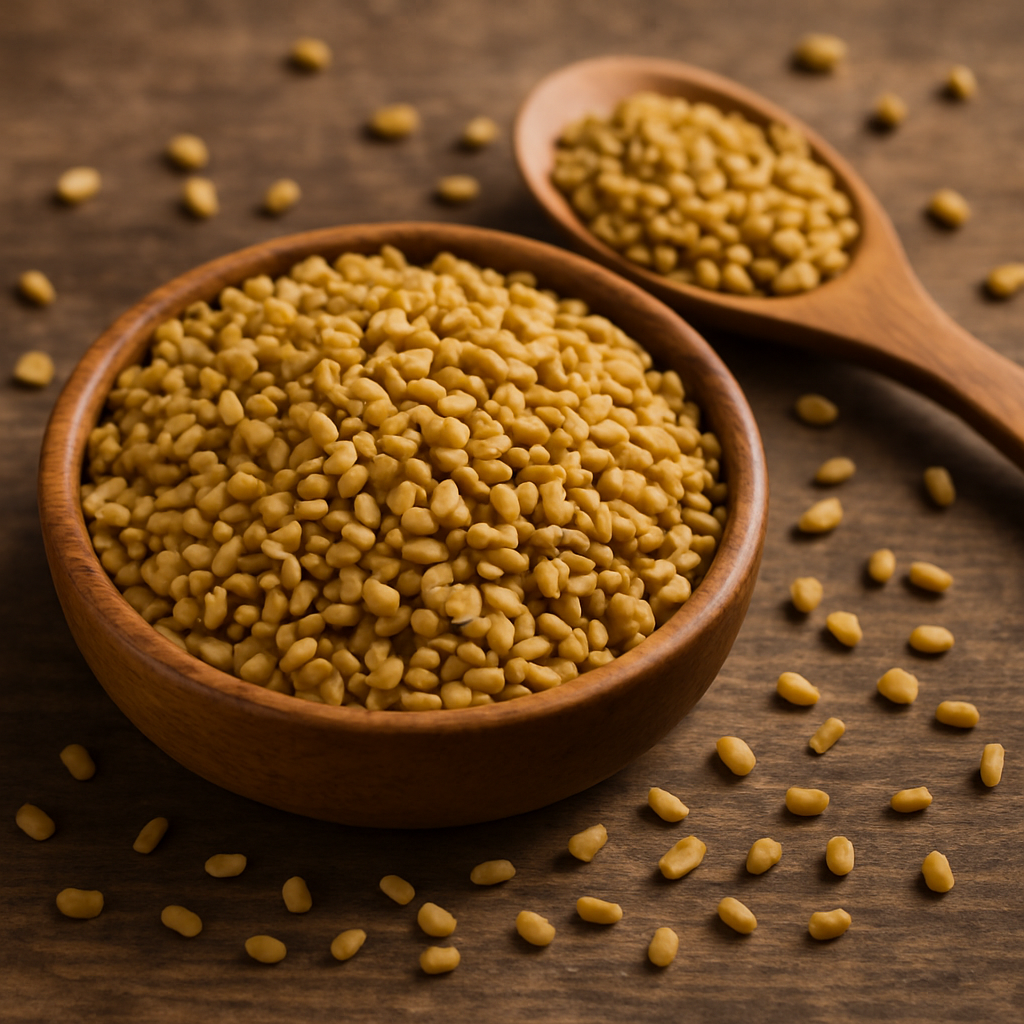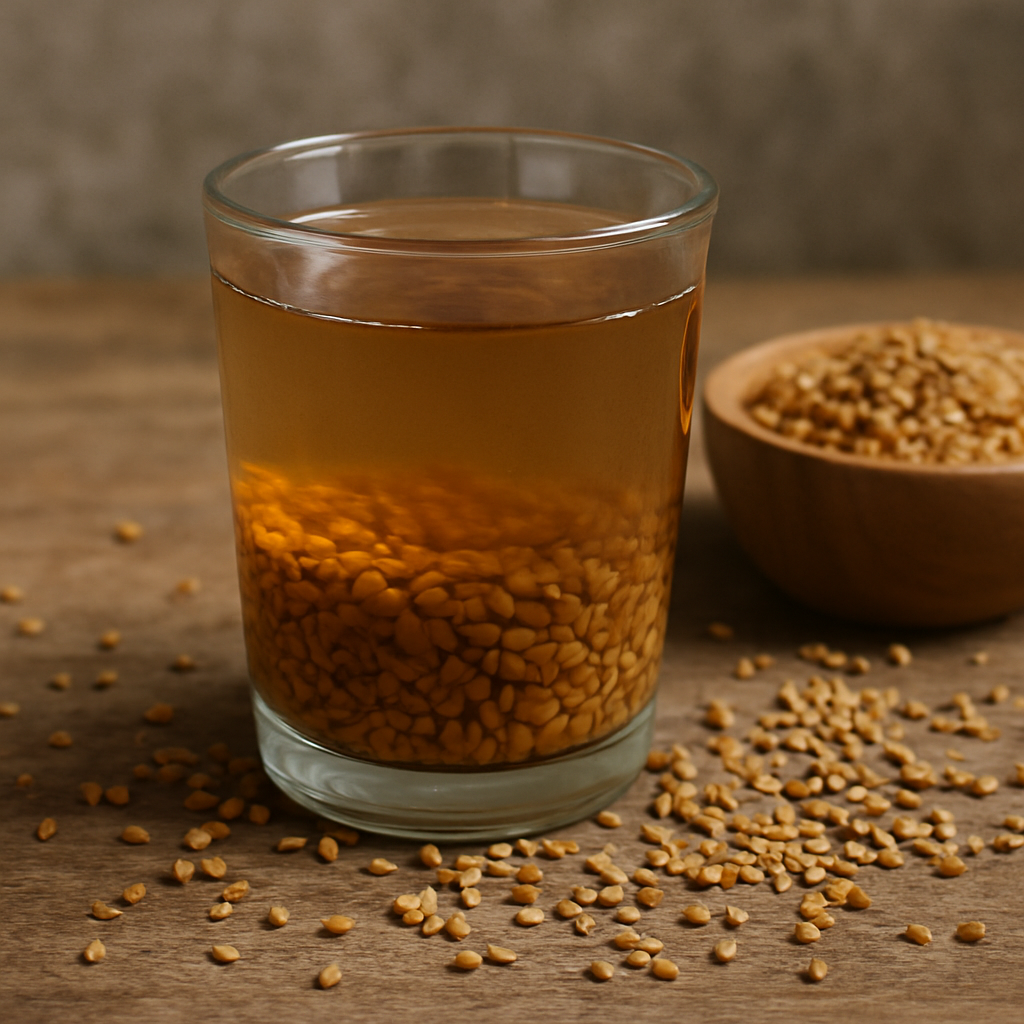Ask Ayurvedic doctor a question and get a consultation online on the problem of your concern in a free or paid mode. More than 2,000 experienced doctors work and wait for your questions on our site and help users to solve their health problems every day.
What Is Methi? Ayurvedic Guide to Seeds, Leaves, and Benefits

You’ve probably heard of methi before — maybe as a spice in your kitchen or as a home remedy your grandma swore by. But what is methi, really? Is it just another trendy superfood, or is there something deeper to its legacy? Spoiler: it’s the latter. From methi leaves in hearty curries to the detox benefits of methi water, this humble plant has woven itself into Ayurveda for centuries.
In this guide, we’ll explore what methi is, dive into methi leaves benefits, highlight how to use methi water, and touch on the impressive methi seeds benefits that have modern nutritionists and ancient healers equally excited. Whether you're looking to fix bloating, balance hormones, or simply curious about benefits of methi water on your skin — this one’s for you.

What Is Methi and Why Is It Important in Ayurveda?
Methi Plant Overview: Appearance, Taste, and Properties
Methi, also known as fenugreek, is a small green herb with a bitter bite and a nutty, slightly maple-ish aroma. Native to South Asia and parts of the Mediterranean, the methi plant grows low to the ground and produces delicate green leaves and golden-brown seeds.
In Ayurveda, methi is considered "hot" in nature and often used to balance Vata and Kapha doshas. It’s said to stimulate digestion, enhance internal heat, and detoxify the system — pretty impressive for something that looks like salad garnish.
The seeds, though bitter, are packed with alkaloids, saponins, and flavonoids that deliver a punch of health benefits. They're often dried and ground into methi powder, soaked in water overnight to make methi water, or pressed into methi oil. Each form offers its own unique perks.
Don't wait or self medicate. Start chat with Doctor NOW
Methi Leaves Benefits for Health and Wellness
Methi Leaves Benefits for Digestion, Inflammation, and Skin
Methi leaves are more than just a flavorful herb. They’re a powerhouse of antioxidants, iron, vitamin C, and fiber. In Ayurveda, methi leaves benefits start with digestion — they stimulate bile flow, reduce bloating, and help relieve constipation. Not the most glamorous topic, but hey, gut health matters.
They also have anti-inflammatory properties that may help ease joint pain or minor skin flare-ups. Some people even mash fresh methi leaves into a paste to treat acne or dandruff. Kinda messy, but totally worth it. Plus, that earthy smell? Not as bad once you get used to it.
How to Use Methi Leaves in Cooking and Herbal Remedies
There’s no shortage of creative ways to enjoy methi leaves. Toss them into rotis, mix with potatoes, or sauté with garlic for a quick, nutrient-dense side dish. Fresh leaves are ideal, but dried versions (called kasuri methi) work great too — especially in curries and dals.
For DIY herbal lovers, you can brew methi leaves into tea or add them to hair masks. Pro tip: Always wash thoroughly before use; they’re notorious for clinging onto dirt. Seriously, no one likes gritty curry.

Methi Seeds Benefits in Ayurveda
Benefits of Methi Seeds for Blood Sugar and Hormonal Health
Here's where things get interesting. Methi seeds benefits have been widely studied, especially when it comes to blood sugar control. These little golden nuggets contain soluble fiber, which can slow down sugar absorption in the intestines and improve insulin response. Ideal for folks managing diabetes or prediabetes.
But it doesn’t stop there. Methi seeds are also praised for helping with hormonal imbalances, especially in women. They may support healthy estrogen levels, ease menstrual cramps, and even boost milk production in breastfeeding mothers. Though, every body is different — what works wonders for one might not for another.
How to Use Methi Powder, Seeds, or Methi Oil in Daily Routine
So, now you’re probably wondering — how do I actually use all these methi forms without turning my kitchen into a lab?
Let’s start with methi powder. This fine, earthy-smelling powder is just ground-up methi seeds. You can mix a small spoonful into warm water and drink it on an empty stomach, which some people do daily for its digestion and metabolism-boosting effects. Or sprinkle it in yogurt, smoothies, or even baked goods if you’re feeling experimental. Taste-wise? It’s… acquired. But hey, health over flavor sometimes, right?
Methi seeds can be soaked overnight in water to soften them (and reduce bitterness), then chewed in the morning. A teaspoon or so is enough. This method is super popular for blood sugar control and cholesterol support. Just don't go overboard — too much methi can cause stomach upset or bloating.
Methi oil is the underdog here. Made by infusing the seeds in a carrier oil, it's mostly used topically. Massage it into your scalp to combat dandruff, promote hair growth, or nourish dry skin. Some people also add a few drops to bath water for a soothing soak, though be careful — it can leave you smelling like a spicy salad.

Methi Water Benefits
Benefits of Methi Water for Digestion, Weight, and Skin
Methi water is one of the simplest (and surprisingly powerful) ways to tap into methi benefits. To make it, just soak a teaspoon of methi seeds in a cup of water overnight. In the morning, strain and drink it before breakfast.
Why go through the trouble? Because the benefits of methi water are pretty compelling.
-
Digestion: Methi water helps lubricate the intestines, reduces bloating, and can keep things moving. If you're the type who skips fiber and regrets it later, this might help.
-
Weight management: The fiber in methi swells up in your stomach, helping you feel full and curb those snack cravings. No, it’s not magic, but it sure helps.
-
Skin glow: Thanks to antioxidants and anti-inflammatory compounds, some folks say their acne reduced and skin felt clearer after just a few weeks of drinking methi water.
Quick tip: the taste can be a bit bitter, so adding a dash of lemon juice or honey doesn’t hurt.
Methi Water Side Effects and When to Avoid It
Before you run to the kitchen — a quick reality check.
Yes, the benefits of methi water are awesome, but not everyone should be drinking it daily. Some people experience diarrhea, flatulence, or low blood sugar if they take too much. Methi water side effects are usually mild, but still, listen to your body.
Pregnant women should avoid excess methi, as it might cause uterine contractions. Also, if you're on blood thinners or meds for diabetes, speak to your doctor first. Herbal doesn’t always mean harmless.
Oh, and one more thing? Your sweat might start smelling a bit maple-syrupy after regular use. Not necessarily bad... but definitely odd.
Conclusion
So, what’s the deal with methi? In short, it's a small herb with some seriously big potential. Whether you're sipping methi water to calm your digestion, tossing fresh methi leaves into a curry, or experimenting with methi oil for hair care — this plant covers a lot of ground. And it’s not just ancient Ayurvedic hype. Modern science is catching up, slowly confirming many traditional methi benefits that have been known for generations.
But like any wellness tool, the key is balance. It’s tempting to go all-in once you hear about the benefits of methi seeds or read a testimonial about weight loss from methi water. Yet, going overboard can backfire — with side effects ranging from digestive issues to hormonal imbalances. More isn't always better.
Still, for most people, introducing methi into your routine — whether as methi powder, tea, seeds, or leaves — can bring subtle but valuable improvements to digestion, skin, blood sugar, and even mental clarity. Plus, it’s affordable and easy to find.
Curious to try it yourself? Start small. Experiment. And hey, maybe even grow your own methi plant — it’s surprisingly easy in a pot on a sunny windowsill.
FAQs
Can I use methi powder or methi oil for skin and hair?
Absolutely. Methi powder can be mixed with yogurt or aloe vera to create a purifying face or scalp mask. It’s especially helpful for oily or acne-prone skin. Meanwhile, methi oil is popular for hair growth — massage it into your scalp once or twice a week and leave it on for 30–60 minutes before washing. It helps reduce dandruff, strengthens roots, and might even help with thinning hair.
That said, always do a patch test first. Not everyone’s skin reacts the same, and allergic reactions — though rare — are possible.
How often can I consume methi seeds safely?
Most people can safely consume about 1 teaspoon of methi seeds daily — either soaked overnight or powdered and mixed with warm water. It’s best to start slow, especially if you’re new to it. Some experience minor bloating or gas when first introducing methi into their diet.
Pregnant individuals, or those with chronic conditions like low blood sugar or thyroid issues, should consult a healthcare provider before adding it regularly.
Is methi helpful for hormonal balance and weight loss?
Yes, there's growing evidence (and centuries of Ayurvedic knowledge) suggesting that methi benefits hormonal health — especially for women. It’s known to support estrogen levels, reduce PMS symptoms, and promote lactation.
As for weight loss, methi water and seeds can help suppress appetite and improve metabolism due to their fiber content. But let’s be real: it’s not a miracle. Methi can support your efforts, but only when combined with proper diet and exercise.
Ready to explore the benefits of methi for yourself? Try adding just one methi-based habit into your routine this week. Whether it’s sipping methi water in the morning or cooking with fresh methi leaves, you might just notice a subtle boost in how you feel.
If this guide helped you, share it with someone who could use a little natural wellness in their life. And if you've got your own methi hacks or recipes, drop them in the comments — let’s keep the goodness growing 🌱

